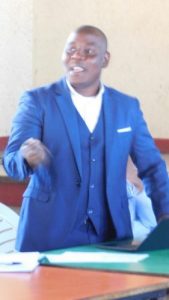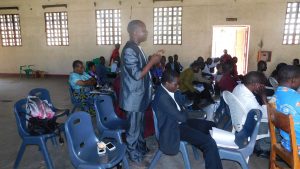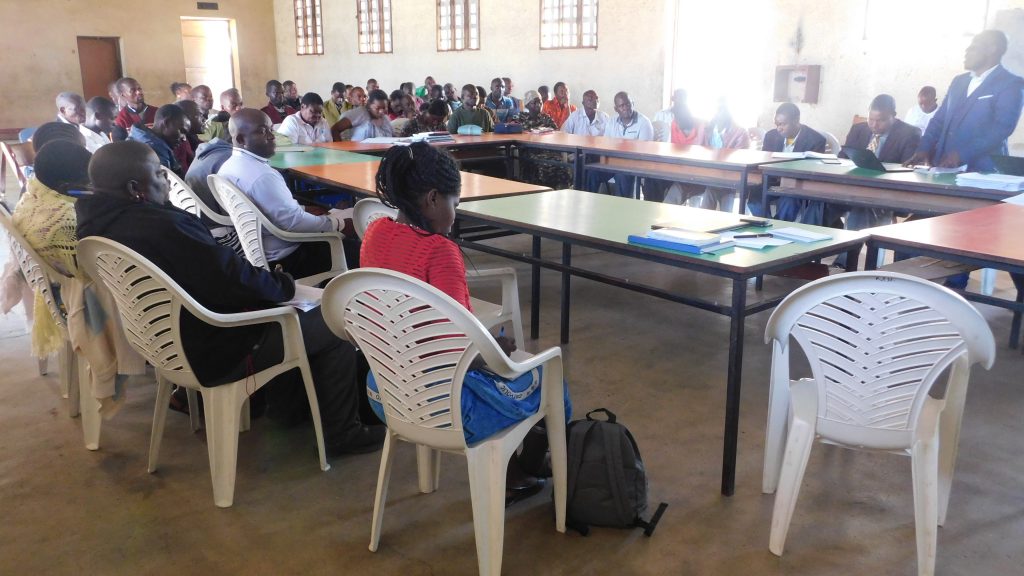[cherry_row]
[cherry_col size_md=”12″]
CAPACITY BUILDING FOR LEADERS – RESPONSE TO THE STRATEGIC PLAN.
The Catholic Church has always advocated for self-reliance since the Second Vatican Council synod. In reaction to this, the Church in African called for a continental synod in 1994 where among other things it was decided that time has come for the laity be fully engrossed in some of the roles that over the ages were limited for the clergy. Families and the youth were sanctioned to start cogitating of modern accepted revenues of attaining an autonomous church. The AMECEA Conference held in Malawi in 2014 endowed the local church to start off using technology as tool for new evangelisation and hence help masses to realise the intention of both the Vatican Council II and the African Synod. In 2004 Rt. Rev. Bishop Alessandro Assolari of the Catholic Diocese of Mangochi responded to the call made by the African Synod to be self-reliant. He convened a local synod in the diocese (Synod of the Catholic Diocese of Mangochi) at which the Church of Mangochi came with capacity building as one of the tools to realise a self-reliant church.

On 14th July 2018, Rt. Rev. Montfort Stima called on representative leaders from the 24 parishes and 5 deaneries in the diocese to a capacity building session.
In his prefatory statement, Bishop Stima drew to their attention a miniature of the fiscal state of the diocese and asked the gathering to come with feasible revenues to realise the calculated plans by the diocese. He however said, ‘the journey to a self-reliant church began way back with Bishop Assolari by calling for ‘the synod’, Bishop Pagani pioneered strategizing the synod resolutions, but here I am to work out together with you on how we may implement the call to give the Church in African a face of the African Church. We are to be hands on and support ourselves. Self-Reliance is the way out.’ He then cited initiatives such as ‘thanksgiving day’ (St. Augustine Feast), on-going formations, trainings, papers Sundays, presentation of a diocesan operational budget to the laity, pastoral audiences and restructuring of the diocese as tools put in place to realise a self-reliant future for the church of Mangochi.

The capacity building session was planned to assist leaders to share better ways to manage parochial temporal goods. Three guest facilitators tackled different vital areas related to finances and administration. Fr. Edwin Lambulira addressed the leaders on Church Property and Temporal Goods, Mr Abel Ngalande talked Accounting Records, Budgets and Reports and Fr. Steven Kamanga taught on Parish Organogram and Roles of the Members. Remarking at the end of the session, Mr. Steve Lingamawa, chairperson to the Diocesan Laity Council said, ‘I strongly believe that this training is going to have great impact because the leaders are equipped to translate words into actions. I anticipate change in the management of finances in our parishes and deaneries. I wish all participants were to use the acquired knowledge for the benefit of the Church and also share it with partners left behind’.
The Code of the Canon Law stipulates the role of the faithful as to support the Church in response to the appeals and in accordance with the norms laid down by the Episcopal Conference, and at the same time empowers the parish priest as the custodian of all temporal goods of the church in a particular parish. He acts in the person of the parish, in accordance with the law. He is to ensure that the parish goods administered accordingly. However in each parish there is to be a finance committee to help the parish priest in the administration of goods of the parish (Can. 537).
[/cherry_col]
[/cherry_row]

